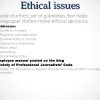What Does the Bible Say About Gambling? Look, when it comes to gambling, there are a lot of questions. Is it okay? Is it sinful? Are we meant to enjoy games of chance? Well, let’s dive into what the Bible has to say about it.
Now, I’m sure you’ve heard different opinions on the matter, but let’s explore what the Bible itself says about gambling. It’s always good to seek wisdom from the source, right? So, let’s get into it!

What Does the Bible Say About Gambling? Understanding the Scriptural Perspective
Gambling has been a popular form of entertainment for centuries, but its moral implications have often been debated. For those seeking guidance on this topic, turning to religious texts can provide valuable insights. The Bible, as one of the most influential religious texts, offers perspectives on various aspects of life, including gambling. In this article, we will explore what the Bible says about gambling and delve into its teachings to better understand the scriptural perspective.
The Sinfulness of Greed and Materialism
The Bible frequently addresses the topics of greed and materialism, highlighting their negative spiritual implications. In the Gospel of Luke (12:15), Jesus emphasizes the importance of disassociating ourselves from the love of money, warning that life does not consist of an abundance of possessions. The apostle Paul echoes this sentiment in the First Epistle to Timothy (6:10), stating that the love of money is the root of all kinds of evil.
Furthermore, the Bible teaches that Christians are encouraged to be content with what they have and to exercise self-control. In the Book of Hebrews (13:5), believers are reminded to keep their lives free from the love of money and to be content with what they have, as God himself has promised never to leave or forsake them.
Based on these teachings, gambling can be seen as an activity driven by the desire for material gain and can easily lead to a love of money and discontentment. It encourages a mindset of seeking quick riches instead of trusting in God’s provision and being content with what one has.
Stewardship and Responsible Use of Resources
Another principle outlined in the Bible that is relevant to the issue of gambling is that of stewardship. Christians are called to be responsible and wise with the resources entrusted to them, including money and possessions. The Parable of the Talents in Matthew’s Gospel (25:14-30) serves as a reminder of the importance of using one’s resources wisely and multiplying them for the benefit of the kingdom of God.
Gambling, on the other hand, often involves the risk of losing money with no guarantee of a return. It can lead to poor financial stewardship and irresponsible use of resources. Instead of investing in meaningful endeavors or helping those in need, funds may be squandered on games of chance, which may not align with the biblical principles of stewardship.
Ultimately, the Bible encourages believers to prioritize responsible stewardship and the wise use of resources, which may inform their decision on whether or not to engage in gambling activities.
Benefits and Drawbacks of Gambling: Weighing the Scriptural Perspective
While the Bible emphasizes the negative aspects of greed, materialism, and irresponsible stewardship associated with gambling, it does not explicitly forbid or endorse the activity itself. However, it provides principles that can guide believers in making informed decisions about whether or not to engage in gambling.
It is important to note that engaging in gambling with the hope of financial gain can be a slippery slope, potentially leading to unhealthy addiction, damaged relationships, and financial ruin. The Bible advises believers to exercise wisdom, self-control, and discernment in all areas of life, including the use of money.
In addition, individuals must assess whether their participation in gambling aligns with their spiritual values, witness, and the greater good of their communities. They should consider the potential negative impact of gambling on themselves and those around them, as well as evaluate the motivations behind their desire to participate in such activities.
By carefully considering the biblical teachings regarding greed, materialism, and stewardship, individuals can make informed decisions about whether or not to engage in gambling activities, keeping in mind the potential risks and consequences involved.
Further Insights from the Bible
Examining Gambling in Light of Biblical Teachings
Gambling addiction and its consequences.
Psychological Factors Influencing Gambling Behavior
The dangers of gambling addiction and its impact on individuals and their families.
Understanding the Biblical Perspective on Risk and Chance
Exploring biblical teachings on risk, chance, and the sovereignty of God.
The Connection Between Gambling and Covetousness
Examining the biblical concept of coveting and its relationship to gambling.
Conclusion
While the Bible does not explicitly condemn or endorse gambling, its teachings on principles such as greed, materialism, responsible stewardship, and contentment provide valuable insights for believers. It encourages individuals to prioritize spiritual values, exercise wisdom, and consider the potential risks and consequences associated with gambling. Ultimately, the decision to engage in gambling activities should be made prayerfully and with a deep understanding of one’s own motivations and the potential impact on oneself and others. As with any decision, seeking guidance from trusted spiritual leaders can also be beneficial in navigating this complex issue.
Key Takeaways: What Does the Bible Say About Gambling?
- Gambling is a controversial topic in the Bible.
- The Bible does not directly mention gambling but raises concerns about the love of money and the temptation it brings.
- The Bible encourages believers to be content with what they have and not pursue quick riches.
- Some Bible verses caution against the destructive nature of gambling and the potential harm it can cause.
- Ultimately, the decision on whether gambling is acceptable is a personal conviction based on biblical principles.
Frequently Asked Questions
The Bible is often seen as a moral guide for many people, addressing various aspects of life. In this context, let’s explore what it says about gambling.
1. Is gambling explicitly mentioned in the Bible?
While the specific act of gambling is not directly addressed in the Bible, it does provide principles related to stewardship, money, and wisdom. These principles can be applied to make informed decisions regarding gambling. The Bible encourages believers to be responsible with their assets, avoid the love of money, and seek wisdom in all areas of life.
Additionally, some passages indirectly address the negative consequences of greed, addictive behavior, and the pursuit of wealth at the expense of one’s well-being or relationships. It’s important for individuals to evaluate their motives and assess whether gambling aligns with the biblical principles they adhere to.
2. Does the Bible condemn all forms of gambling?
The Bible does not explicitly condemn all forms of gambling. However, it cautions against the potential dangers associated with it. Proverbs 13:11 states, “Dishonest money dwindles away, but whoever gathers money little by little makes it grow.” This verse suggests that quick financial gain through gambling may not be favorable, as it can lead to a loss of resources.
Moreover, the Bible encourages a responsible and balanced approach towards money. 1 Timothy 6:17-18 advises not to put hope in wealth but to be generous and willing to share. It’s crucial to remember that gambling, particularly addictive forms like casino gambling, can lead to financial ruin and have a detrimental impact on individuals and their families. Therefore, wise stewardship and a mindful approach are advocated.
3. Can Christians participate in harmless forms of gambling?
Christians may have different perspectives on harmless forms of gambling, such as playing friendly games and lotteries. Romans 14:5 states, “One person considers one day more sacred than another; another considers every day alike.” This verse implies that personal convictions and conscience play a role in determining what is acceptable for an individual.
It’s crucial to keep a few principles in mind: not letting a desire for financial gain override wise stewardship, avoiding addiction or compulsion, and ensuring that gambling activities do not negatively impact one’s relationship with God or others. Each believer should prayerfully consider their own convictions, consulting with mentors or spiritual leaders if necessary.
4. What about charity raffles or fundraising activities that involve gambling?
Participating in charity raffles or fundraising activities that involve gambling is a personal decision. Many Christians view these activities as a way to support worthy causes and make a positive impact in the community. They see it as an opportunity to give generously while potentially receiving a small reward in return.
However, it’s important to approach such activities with caution and discernment. Christians should ensure that their participation aligns with personal convictions, biblical principles, and local legal regulations. They should also ensure that the primary focus remains on supporting the charity or cause rather than the potential financial gain from gambling.
5. What should Christians prioritize when it comes to financial decisions?
The Bible emphasizes several key principles regarding financial decisions. First and foremost, Christians are encouraged to prioritize their relationship with God and seek His wisdom in all areas of life, including financial matters. They are advised to be good stewards of the resources God has entrusted to them, managing their finances wisely and avoiding excessive materialism.
Moreover, Christians are exhorted to be generous, compassionate, and willing to share with those in need. 1 Timothy 6:18 advises believers to “do good, to be rich in good deeds, and to be generous and willing to share.” Financial decisions should be made with the intention of honoring God, benefitting others, and promoting personal and spiritual growth.
Is it a SIN to GAMBLE according to THE BIBLE?
Summary
So, what does the Bible say about gambling? Well, it doesn’t mention it explicitly. But, the Bible does caution us about the dangers of greed, addiction, and the love of money. It encourages us to be wise with our finances, to work hard, and to find contentment in what we have. While the Bible doesn’t forbid gambling entirely, it does urge us to be careful and make wise choices about how we use our money. It reminds us that our ultimate trust and reliance should be on God, not on games of chance.
So, if you’re thinking about gambling, it’s important to consider the potential risks and implications. Gambling can become addictive and lead to financial problems or even harm relationships. It’s crucial to make responsible decisions and not let gambling control your life. Instead, focus on finding joy and satisfaction in things that bring true and lasting fulfillment. Remember, the Bible offers guidance on how we can live a life that is pleasing to God and leads to true happiness.









